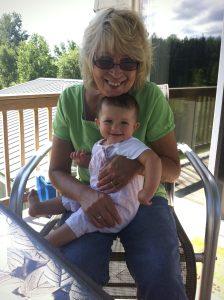So, some people think staying busy is a beneficial way to cope with grief. Not me. I’m usually pretty active, so coping requires a pause. I need time to gather my thoughts and wrestle with them through writing, walking, praying, and pondering.
“We will naturally grieve, but we may have to make a conscious effort to mourn.”
On Loss
I lost my mom in October. I prefer the term she “passed away” to she “died.” Three slow syllables versus one distinct word. Passing was a process for her. As is grief.
In the 1969 book On Death and Dying, Dr. Elisabeth Kübler-Ross, proposed Five Stages of Grief: denial, anger, bargaining, depression, and acceptance. These stages are now widely recognized and referred to within the mental health community.
Grief Related Resources
My mom’s hospice team gave our family handouts, including The Mourner’s Bill of Rights by Alan D. Wolfelt, Ph.D. An example is, “You have a right to search for meaning.” Another paper provides a list of common reactions, emotions, and changes: check, check, check. I can relate to crying, sighing, and exhaustion. These resources are reassuring because a person’s grief experience is both universal and unique.
Reflections
Unfortunately and inevitably, we (will) all deal with death. Communicating understanding, sending sympathy, showing compassion, offering support, and holding space eases the heartache. It also connects us to each other in meaningful ways.
Music and memories are a gateway to feelings for me. Special songs that remind me of my mom include: “All My Love” by Led Zeppelin, “You Can’t Lose Me” by Faith Hill, “Landslide” by Fleetwood Mac, “Turn, Turn, Turn” by The Byrds, and “In Your Time” by Bob Seger.
“We often need to allow feelings to begin healing.”
I find that additional mechanisms of comfort involve corresponding with loved ones, telling stories, reminiscing via mementos, looking over old letters, listening to voicemails, flipping through photo albums, sharing pictures, cooking cherished recipes, embracing community, cleaning (it can be both meditative and productive), exercising/dancing, resting, watching movies (like Benjamin Button and Gilbert Grape), reading uplifting sentiments, and remembering to have gratitude for good times.
“Grief and mourning may involve a wide variety of different thoughts and feelings.”
Many of us moms have reached the age where our parents are crossing the workforce finish line into retirement. Every generation hopes to finally enjoy the golden years someday. As the Christmas carol goes, “Through the years, we’ll all be together, if the fates allow.” Let us try to make the most of precious time.
Of course, other hardships call upon us to cope throughout life and time’s passage. Losses come in many forms and at different ages. Losing a parent is the natural order and progression, but it sure shifts a person’s perspective! Starting a new year without my mom is a first.
Recommendations
Reading books can help with sorrow. These three were recommended to me: Grief One Day at a Time, Understanding Your Grief, and Healing Your Grieving Heart by Alan D. Wolfelt, Ph.D.
Ojai artist Susan Florence has several gift books for sale on the subject. Need a story to help kids cope? Consider the beautifully illustrated “Invisible” books by local author Patrice Karst.
Websites, support groups, and faith-based organizations offer encouragement as well. The quotes noted here come from a list titled Realistic Expectations for Grief and Mourning, courtesy of northern Michigan’s munsonhomehealth.org.
“Let your heart guide you. It may be broken, but it still knows the way.”


















